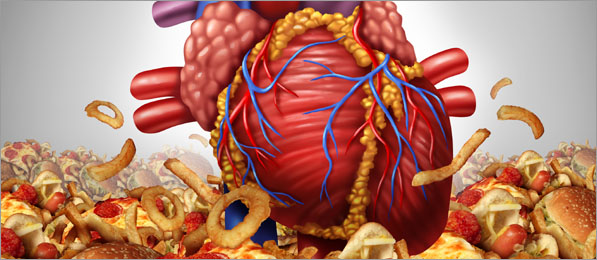Obesity

Obesity means having too much body fat. It is different from being overweight, which means weighing too much. The weight may come from muscle, bone, fat, and/or body water. Both terms mean that a person’s weight is greater than what is considered healthy for his or her height.
Obesity occurs over time when you eat more calories than you use. The balance between calories-in and calories-out differs for each person. Factors that might affect your weight include your genetic makeup, overeating, eating high-fat foods and not being physically active.
Being obese increases your risk of diabetes, heart disease, stroke, arthritis, and some cancers. If you are obese, losing even 5 to 10 percent of your weight can delay or prevent some of these diseases.
In ayurveda, obesity is called as Medo Roga. It is comparatively easier to help an underweight person than an overweight person. The obesity problem can be either due to an actual increase in the fat component (meda dhatu) or malfunctioning. These, accordingly, will need different approaches. In very few cases, it can be an offshoot of other metabolic disorders.
Body is made of seven dhatus {rasa (lymph), rakta (blood), maans, meda (fat), asthi (bones), majja (nervous system) and shukra (reproductive system). However, in obese persons, meda is excessively nourished and the remaining other dhatus get malnourished. Kapha gets accumulated in between. When kapha increases in abnormal fashion, fat metabolism gets hampered and obesity is caused.
The role of medicines with dietary correction is to remove obstructed kapha and let all dhatus nourish equally. It is not only the quantity of food that is important, but also the type of food one eats. It is not always necessary to go on a restricted diet. Qualitative changes and food habits can bring remarkable changes.
Management of obesity
Prevention is always better than cure. It is better to take precautions instead of taking treatment after increase in weight.
- Avoid excess eating, eating during indigestion or just after taking previous meal.
- Avoid day sleeping; sleep in the night after one hour of your dinner.
- Exercise regularly (brisk walking, running, swimming, etc.). Avoid sedentary and lethargic lifestyle.
- Avoid eating excess sweets. Consume low fat /skim dairy products. Avoid chocolates, ice-creams, cheese, paneer, sugar, etc.
- Take non-vegetarian food such as chicken, fish, eggs, meat, etc. in moderate quantity. Remove fat from meat & skin from chicken.
- Try to minimise excess oil & ghee in cooking. Use a non-stick pan for cooking.
- Avoid hydrogenated vegetable oils, instead of frying things try to consume roasted things & change your cooking techniques a little.
- Grill or bake food instead of frying. Cook vegetables without fat by steaming and boiling.
- Use low fat spreads and chutney on bread instead of butter and cheese.
- Don’t consume alcoholic drinks in excess or water on empty stomach
- Avoid aerated drinks and excess water after meal.
- Restrict intake of fat and carbohydrates.
Medicinal treatment
The ayurvedic approach to drugs in general is quite different from what we’ve been used to. Herbal supplements can be of great benefit in weight control without the negative side effects of conventional drugs. Diet therapy alone does not constitute complete treatment for obesity. While diet can avoid the further possibilities of obesity, fat has to be treated and the defective metabolism must be corrected. This is done by ayurvedic medicines. These medicines improve fat metabolism in an obese individual. Once a person’s metabolism is corrected, it is easy for him to maintain his weight.
Tariffs
| Ward | 5 days (INR) | 7 Days (INR) | 14 Days (INR) |
| Standard Room | 13,500 | 17,500 | 27,500 |
| Special Room | 17,500 | 22,500 | 31,500 |
| Deluxe Room / U. Deluxe Room | 20,500 | 26,500 | 34,500 |

